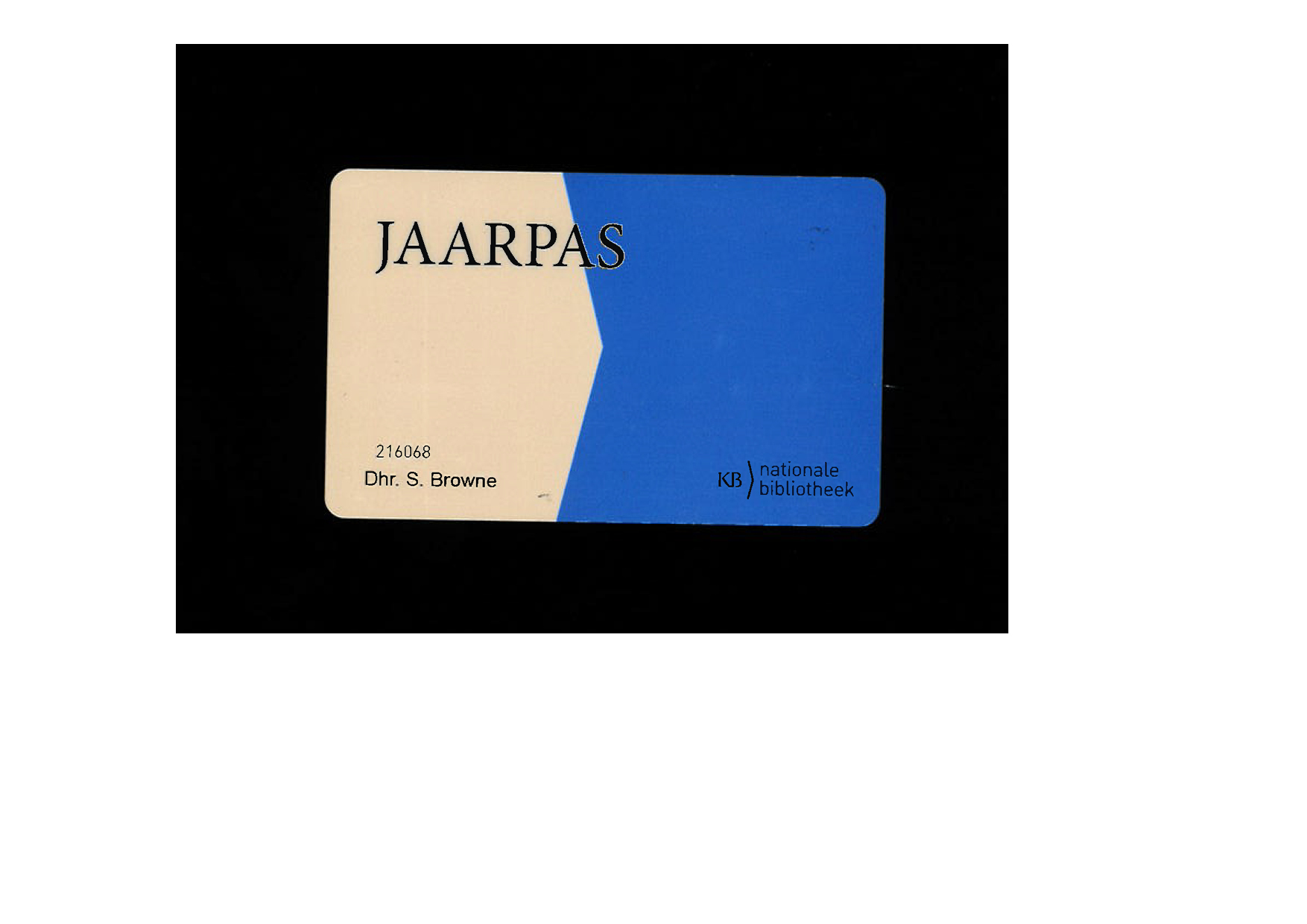including/excluding

see also making it public/keeping it private
Inclusion and exclusion are not just processes that occur when books arrive in the library. They are recurring, procedural, practical actions executed throughout the library’s lifetime. It comes down to the issue of space quite rapidly. With too many books, certain brutal decisions may have to be made to retain or dispose of the surplus.
The results of including and excluding are visible in the catalogue and classification system adopted by the library, defining its particular interests.
Inclusion also plays a part when considering how public or private the library is, and how its membership is formed. There are several layers of privilege (and accompanying responsibilities) that can be given, from anonymous guest, to registered user, to administrator. Users who have administrative privileges may add new users and bestow (or revoke) freedoms and responsibilities.
Image: A membership card for the Koninklijke Bibliotheek, the national library of the Netherlands
